Jasvir Singh: 'I'm a devout Sikh - and married to a man'
- Published
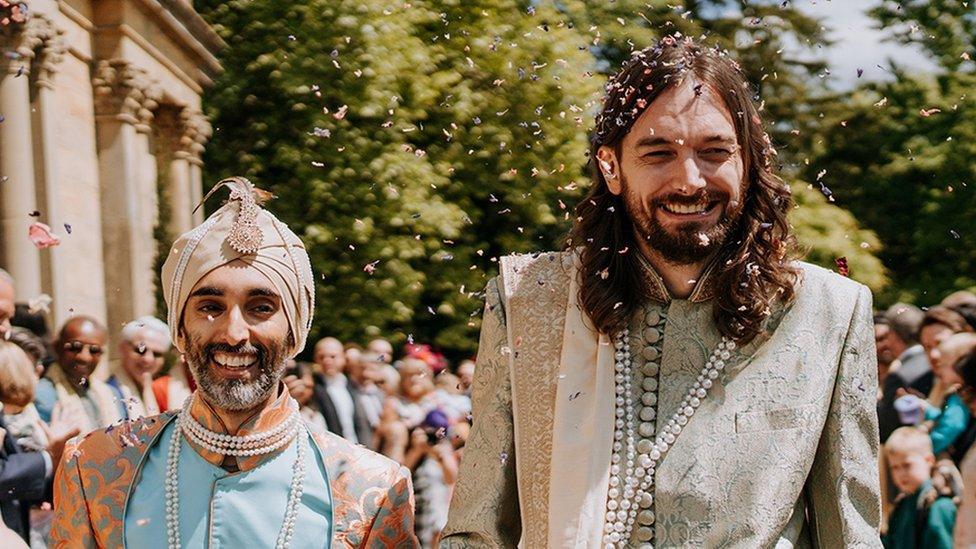
Jasvir and Nick on their wedding day
Jasvir Singh is one of the most prominent Sikh voices in British public life. He is also gay - a fact that he has kept mostly private until now. It's put him at odds with some members of his own community, but he says he now wants to speak up about his sexuality.
Jasvir Singh lays out some photographs on the table in front of him and takes a deep breath. They are pictures of joyful moments from the day last summer when he married his husband, Nick.
"I know that speaking about this is going to be highly controversial," he says. "I'm sure there will be lots of people out there who will be upset, annoyed, even angry at me.
"But I've got nothing to hide and I know that I have got Waheguru [God] with me, as I have had Waheguru with me all the way."
Jasvir is a family law barrister and the main Sikh contributor to Radio 4's Thought For The Day. He has just been awarded a CBE for his work bringing faith communities together and advocating for vulnerable groups.
But through it all, he has lived with a swirl of speculation about his private life - often spilling over into attempts at intimidation - that he now wants to address head-on.
"There is a very small element of the British Sikh community that makes itself loudly heard. From them I have received death threats for being gay, I have been accused on a TV station of being an infidel and I have even had individuals call me up and threaten to expose me."
Though Jasvir says he has not tried to hide his sexual orientation, it is not something he has talked about publicly.
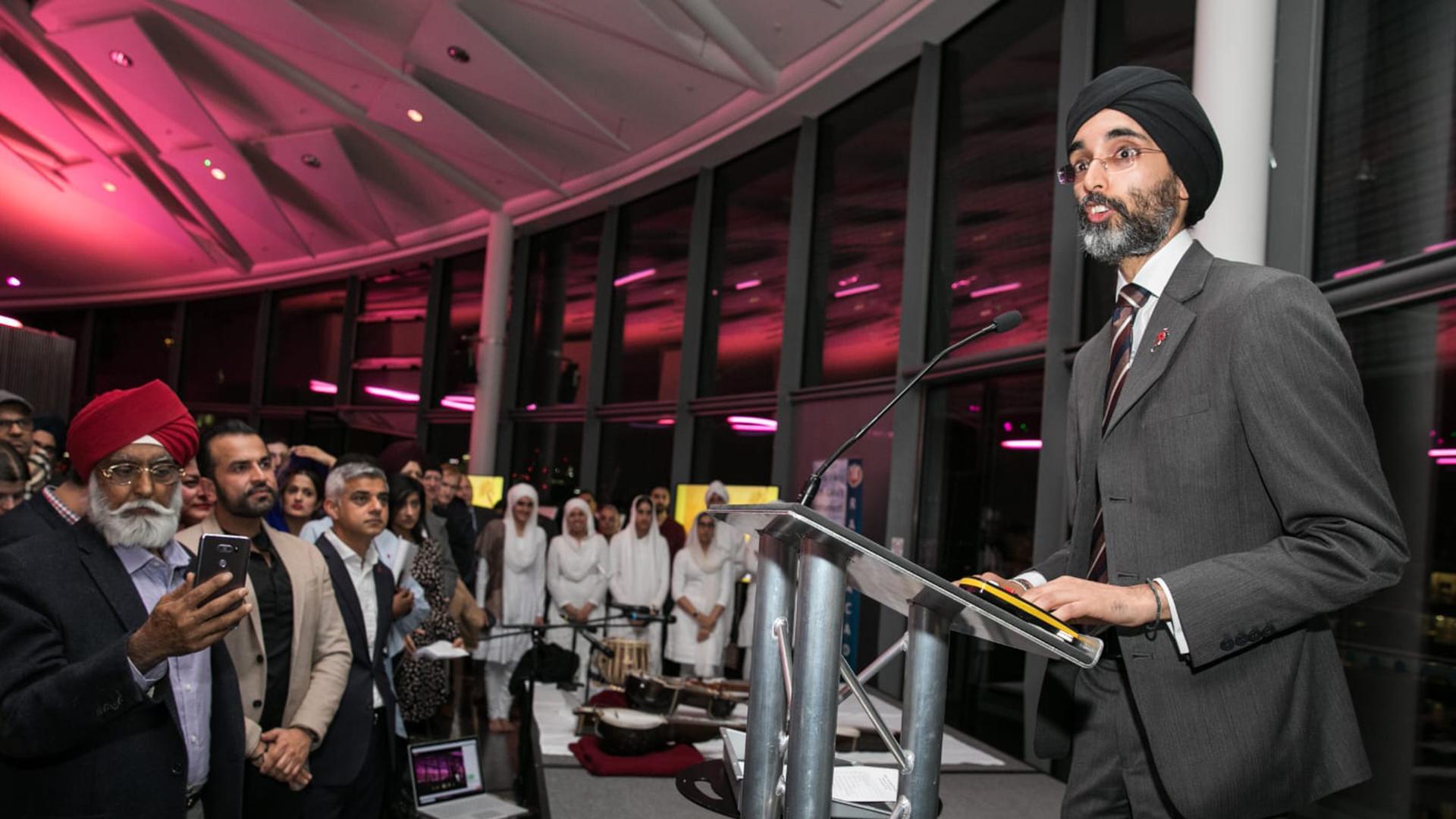
Jasvir Singh addressing an audience at a multi-faith forum (including Mayor of London Sadiq Khan)
After a video from his wedding recently started being shared on social media, he felt the time was right to speak up. He wanted to tell his story on his own terms, and also to send a message to gay Sikhs facing difficulties.
"Just as my Sikhism is part of me, so is my sexuality. So is my turban. So is my identity. I can't divorce any one thing from the rest of me. That is who I am."
Jasvir says that the Sikh religion in which he grew up within his family, was very focused on a central tenet of equality, and says he has never felt his faith to be in conflict with his homosexuality. He points to a pivotal moment when he was 16 years old.
"I was waiting for my GCSE results and went on a pilgrimage to India. With my dad, I trekked three or four days to a place called Hemkund Sahib, a beautiful idyllic gurdwara [Sikh temple] in the Himalayas.
"After the arduous journey, I paid my respects but the one thing I prayed for was to be straight. I just wanted to be able to live a life where I did not embarrass people, and where my family would not be ashamed of me."
Jasvir says that because his sexual orientation did not change after the pilgrimage, he began to feel that this was the way that had been laid out for him by Waheguru. It gave him the confidence to start coming out to friends.
Though many Sikhs see things differently, Jasvir says he never saw any conflict in the religion's teachings and scripture between his faith and his sexual orientation.
The Guru Granth Sahib, the core Sikh religious text, does not refer to homosexuality at all, but it does make mention of husbands and wives.
It also speaks of an all-pervading divine spirit and seeing that spirit in everyone irrespective of race or class or gender. This has allowed Sikhs on different sides of the debate to point to scripture as backing up their own position on homosexuality and on same-sex unions.
Recently, however, Jasvir says he has been confronted by an unsurmountable obstacle that meant he could not live out his faith in the way in which he wanted and in the way others can.
"My husband is white, British, and was not born into a Sikh family. But he understands my Sikhi (Sikhism) and he has respected and embraced that part of my life. We have said we want to have a family and want to bring our children up Sikh.
"We spoke about the kind of wedding we wanted in great detail, but sadly there was no way of getting married in a gurdwara, even though in my interpretation of the Anand Karaj (the Sikh marriage ceremony), there is no reason for this."
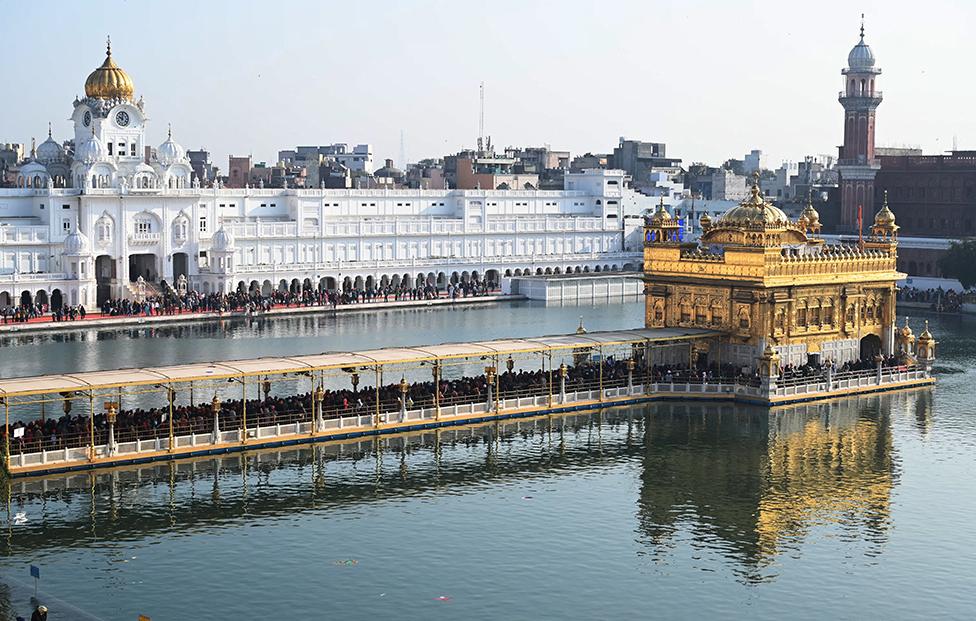
The Golden Temple of Amritsar, one of the holiest sites in Sikhism
Sikh organising bodies in the UK and elsewhere see things very differently.
In 2005, the Sikh religious leadership of the Akal Takht at the Golden Temple in Amritsar in Punjab, restated the position that same-sex marriage was unacceptable.
"From a faith perspective the position remains rock solid. The Anand Karaj ceremony is only for heterosexual couples," says Gurmel Singh, secretary-general of the Supreme Sikh Council in the UK, a representative body of British Sikhs and Sikh places of worship.
Gurmel Singh says that he knows and respects Jasvir as a Sikh advocate, but that even in a fast-evolving society, the fundamental doctrines of the faith will not change to allow him to marry a man in a gurdwara.
But Jasvir recounts a moment which he interprets as acceptance from a Sikh religious figure that deeply touched him. It happened with his fiancé in a gurdwara in the UK in the run up to his civil marriage last year.
"We went to offer blessings and had taken in a rumalla, a cloth used to cover the scriptures. The granthi, the custodian of the scriptures, saw us come in together and said he would say the ardas [prayers] for us.
"The granthi asked if there was anything in particular we wanted him to pray for, and we just said, for our wellbeing. But he asked if we were absolutely sure there was nothing else we wanted him to pray for. It was then I realised he had noticed that we both had mehndi [henna] on our hands which is often done in the run-up to getting married.
"He said the ardas and it was not just for our wellbeing, it was for the coming together of our two families. It was so powerful for me and for the two of us."
Jasvir and Nick have just returned from their honeymoon, during which they visited gurdwaras in Punjab and in other parts of India.
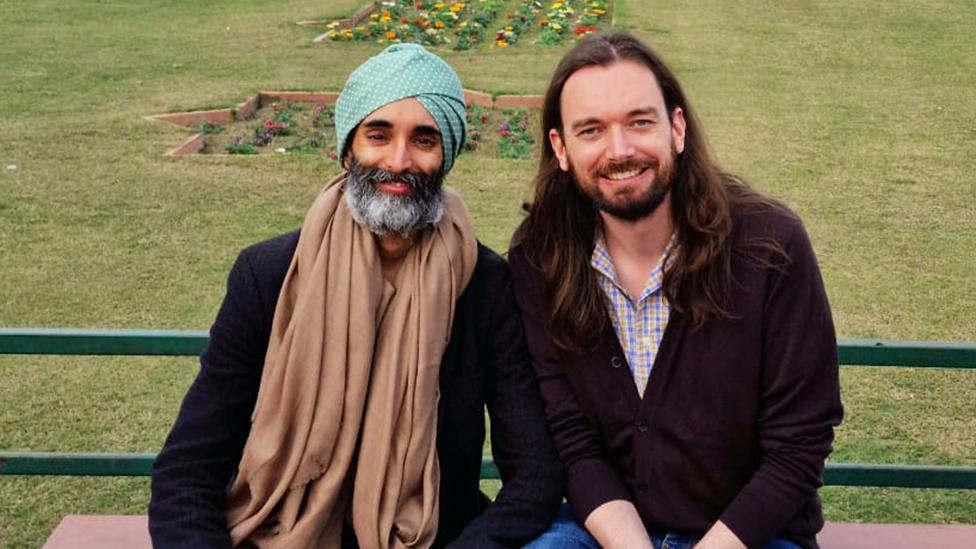
Given that the overwhelming majority of Sikhs have origins in Punjab, Jasvir feels edicts made by the faith's religious leaders are heavily influenced by Punjabi culture over scripture, though that is denied by UK Sikh bodies.
"Sadly I know gay Sikhs who have given up their faith, or who feel their only option was to cut their hair, and to become less faithful, or just focus on their inner faith rather than spend time at the gurdwara."
Though he is himself leader of a progressive Sikh organisation in the UK, there are those in the faith community here who do not consider Jasvir a true practising Sikh, but one who wears a turban and follows some aspects of Sikhism.
"My faith has been a constant in my life through good times and bad. I'm not going to waver from my faith but I'm also not going to be ashamed of my sexuality," Jasvir says.
Part of Jasvir's reason for speaking out is also because he says he had never had gay Sikh role models, particularly couples and those who considered themselves to be religious. But he also recognises that he has been relatively privileged.
"Sadly I have seen some Sikhs who have come out to their family members who have been kicked out of their homes, who have been beaten, who have been called paedophiles, and have had so much thrown at them.
"When they see that done by family members wearing turbans they associate that image with their faith. They may even be unable to speak openly to someone who's wearing a turban because of what they've experienced."
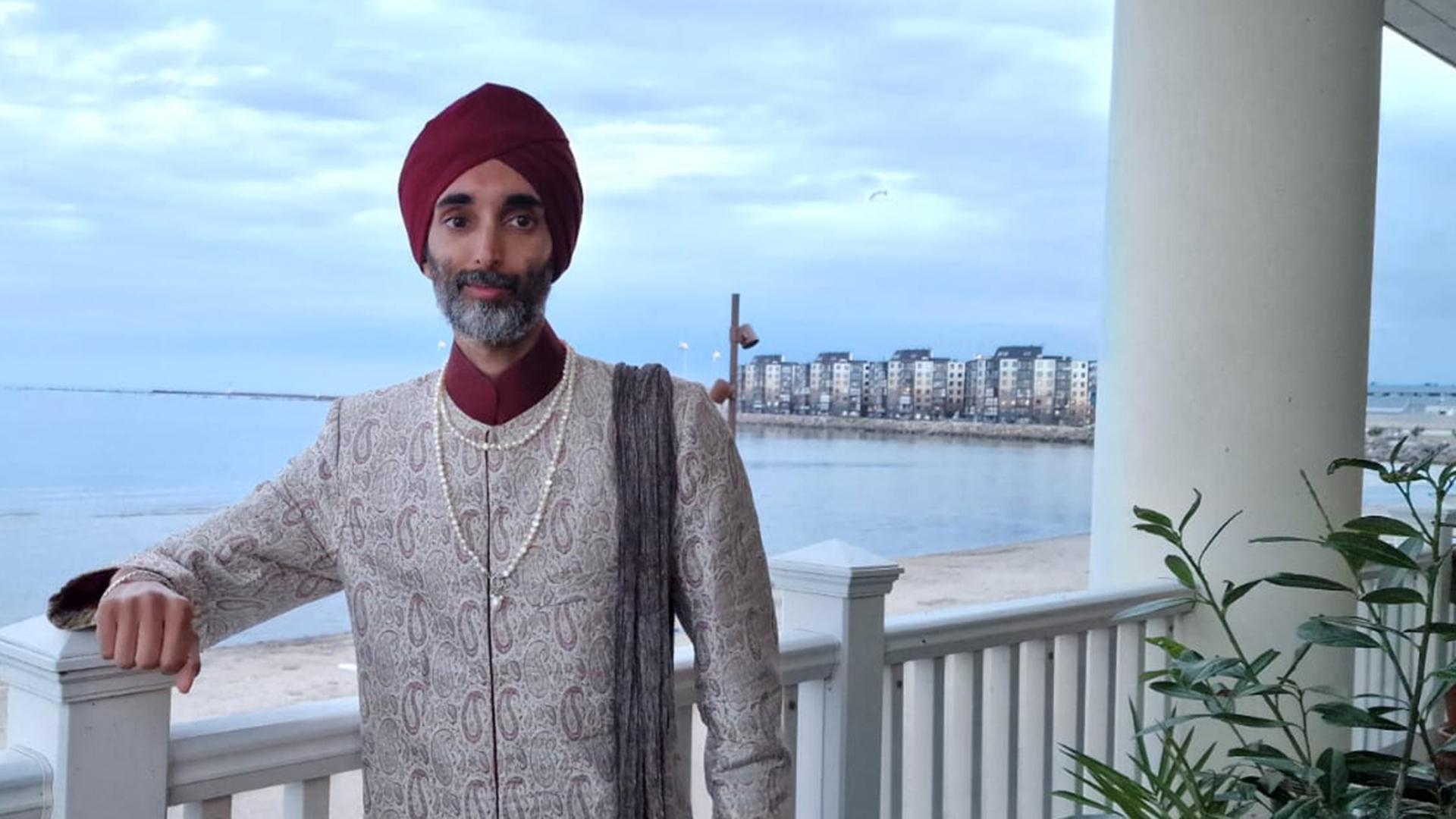
Jasvir hopes that by speaking out, he will encourage others to be proud of who they are.
He says that in the UK, Sikh society is moving towards more acceptance and understanding, and while he is expecting some backlash for speaking up, he is also hoping to be pleasantly surprised by some.
"When that wedding video was leaked and maliciously spread around social media, it was the way one of my elderly relatives found out I was gay," he says.
"She is in her nineties but she said to another family member, 'As long as he is happy, I am happy' - something we all could learn from."
Jasvir's story is explored further in Beyond Belief on BBC Radio 4 at 16:30 GMT on Monday 6 Feb